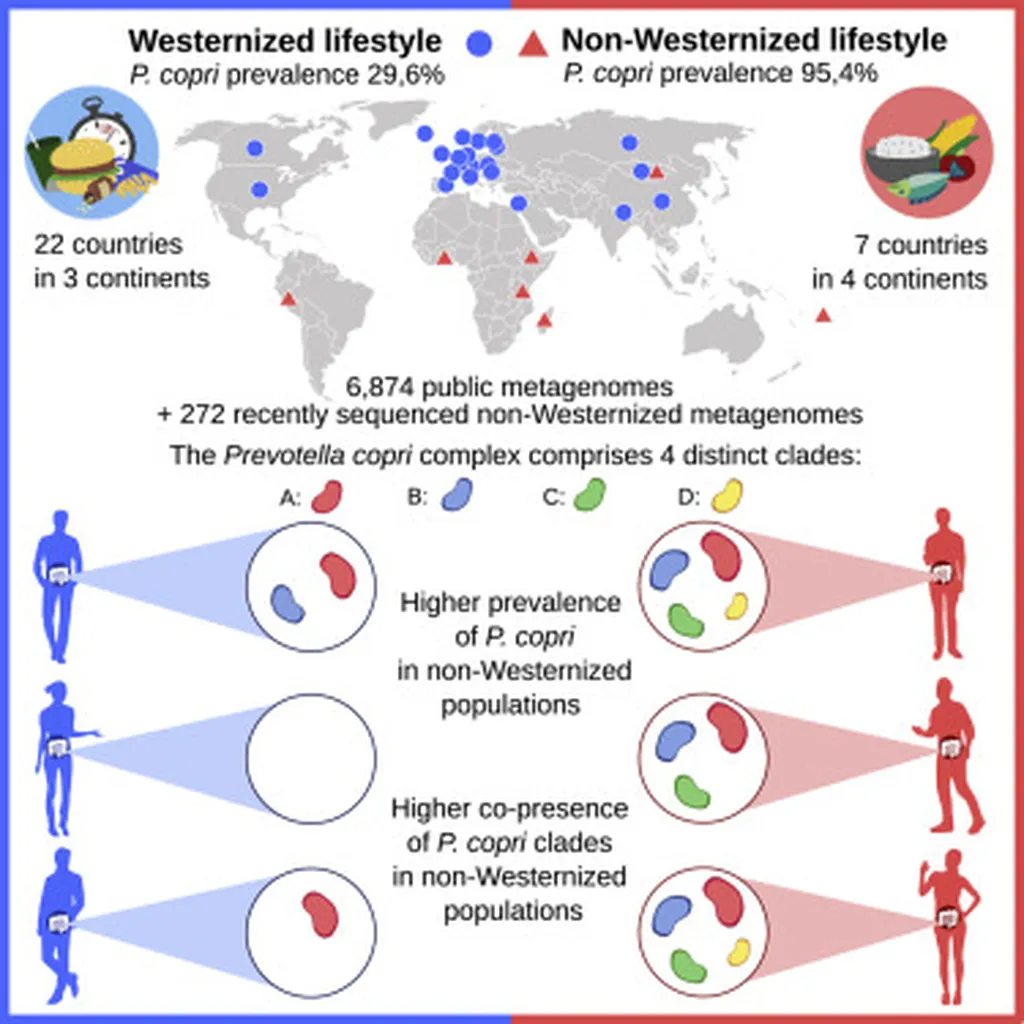In the quest to combat post-weaning diarrhea in piglets, a persistent and costly challenge for the agriculture industry, researchers have uncovered a promising ally: Prevotella copri. A recent study published in the *Journal of Animal Science and Biotechnology* sheds light on how this gut bacterium could revolutionize piglet health and, by extension, the agricultural sector.
Diarrhea in weaned piglets is not just a health issue but an economic one, leading to reduced growth rates, increased mortality, and substantial financial losses for farmers. The study, led by Cong Lan from the Key Laboratory for Animal Disease-Resistance Nutrition at Sichuan Agricultural University, explored the potential of Prevotella copri to alleviate these issues.
The researchers simulated unsanitary housing conditions and cold stress, factors known to trigger diarrhea in piglets. Under these challenging conditions, piglets were administered either a blank medium or Prevotella copri. The results were striking. “Cold stress induced a diarrhea incidence of 33.45% in the control group, while P. copri supplementation significantly reduced the diarrhea rate to 19.73%,” Lan reported. This reduction in diarrhea incidence is a game-changer, offering a potential solution to a longstanding problem in pig farming.
The benefits didn’t stop at reduced diarrhea rates. Prevotella copri also improved intestinal morphology, decreased serum levels of harmful substances like lipopolysaccharide (LPS) and intestinal fatty acid-binding protein (i-FABP), and enhanced antioxidant capacity. “Treatment with P. copri markedly improved intestinal morphology in the small intestine,” Lan noted, highlighting the bacterium’s role in gut health.
The study delved deeper, revealing that Prevotella copri reshaped the gut microbiota’s composition and functional profile. It enhanced the modularity and robustness of microbial ecological networks, creating a more resilient gut environment. This finding is crucial for understanding how gut microbiota can be manipulated to improve animal health.
Moreover, the research identified significant enrichment of metabolites involved in the arachidonic acid pathway following P. copri supplementation. This pathway is known for its role in inflammation and immune response, suggesting that Prevotella copri could modulate these processes to benefit piglet health.
The implications for the agriculture industry are substantial. If Prevotella copri can be effectively harnessed, it could lead to healthier piglets, reduced antibiotic use, and improved economic outcomes for farmers. “These findings highlight the role of P. copri in maintaining gut homeostasis and provide new insights into microbiota-based interventions for early-life intestinal disorders,” Lan concluded.
As the agricultural sector continues to seek sustainable and effective solutions to animal health challenges, this research offers a promising avenue. The potential to leverage gut microbiota for improving animal health could pave the way for innovative, nature-based interventions. The study, published in the *Journal of Animal Science and Biotechnology*, marks a significant step forward in this exciting field.

